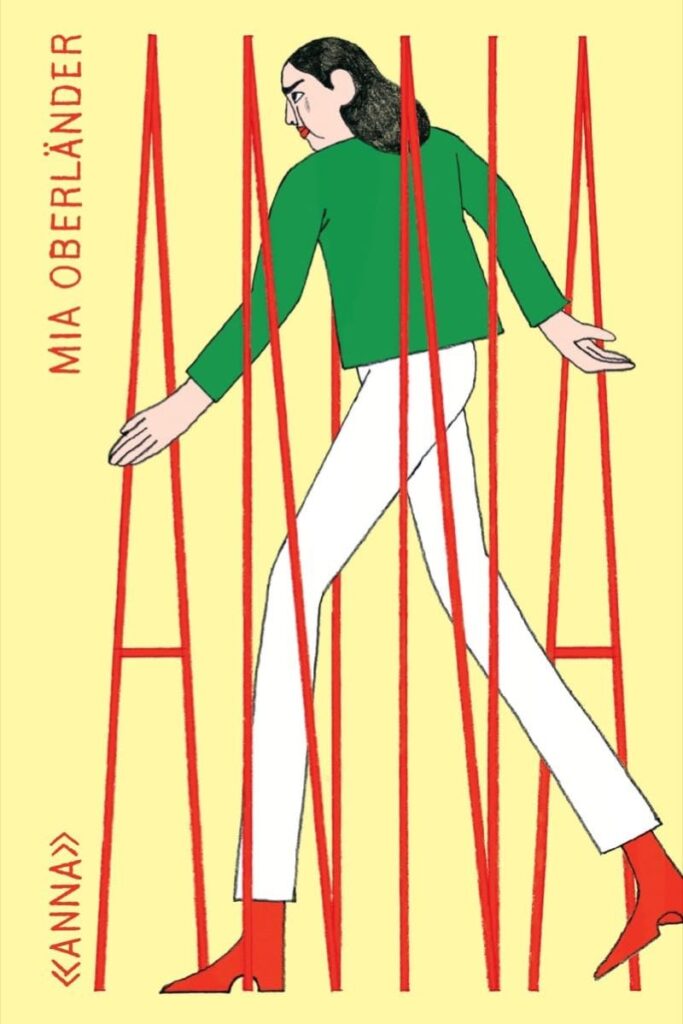
Anna is tall. Like, freakishly tall, with legs so long she’s able to stride over small mountains in a single step. In German cartoonist Mia Oberländer’s charming debut graphic novel, Anna struggles with life as a giant in a community of normal-sized peers.
Buy Anna by Mia OberlanderWhile Oberländer’s sparse plot relies more on allusion than concrete details, Anna seems to have derived her height from her absent father, and passes on that height to her own daughter later in the book. Anna’s mother raises her as a single parent in a tight-knit small mountain community, and while the residents seem mostly supportive, Anna’s extreme height is a hindrance to her ability to have a normal life.
Oberländer eschews a linear narrative for a series of vignettes, skipping around between the perspective of Anna’s mother in the past and Anna and daughter in the present as they navigate a series of daily struggles to fit in. This limits any meaningful character arcs, as the leads remain mostly unchanged throughout the book, just forced to deal with whatever indignities befall them along the way. However, strong familial bonds are present, as the three ladies support each other through their various travails.
Oberländer’s drawings drift to the abstract, with character designs so loose that the large characters seem to shift from between 7 to 70 feet tall. Her characters are drawn in a very basic and unadorned style, with seemingly no variation in line weight. She does attempt some limited shading in a few scenes, but largely chooses to pursue the design aesthetic that less is more.
The book is in full color, but Oberländer’s palette sticks to a handful of basic primary colors. Her preference for green, yellow, red, and blue flat tones brings to mind the work of Dick Bruna in the Miffy series of children’s books, as well as a recent graphic novel by fellow Fantagraphics artist Anna Haifisch, Schappi. Backgrounds are also very basic, when they appear at all, with Oberländer keeping the focus on her characters to such an extent that they frequently appear in blank white space. It’s as if she was inspired by the Bauhaus movement, boiling down her abstract art to its purest essence with no ornamentation.
Anna can clearly be viewed as an allegory for struggles faced by all women, with the height aspect just a clever lure to pull in readers. Oberländer succeeds in this aspect, even as her minimalist art style limits the book’s visual appeal. Her work here is inspirational as a rallying cry to make more comics, as aspiring artists should gain encouragement from her international attention for this strongly feminist, starkly adorned debut effort.
Anna is available beginning March 26th.